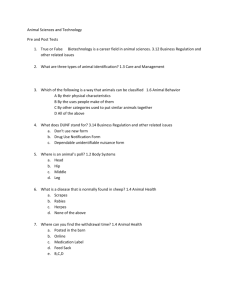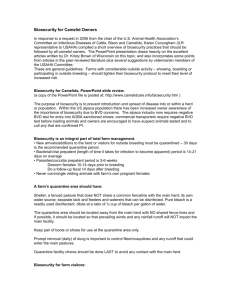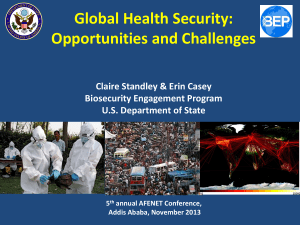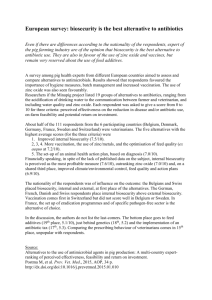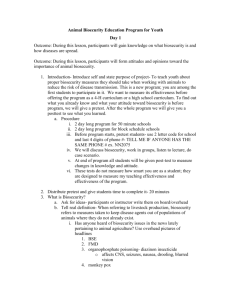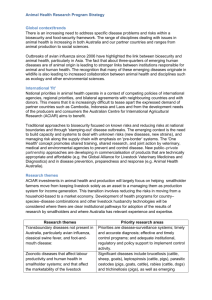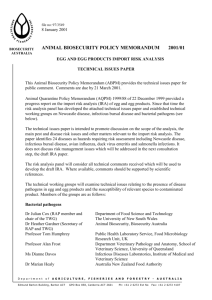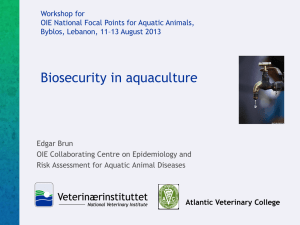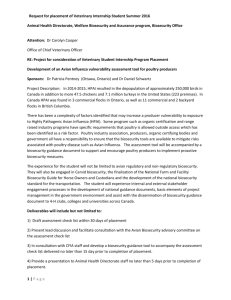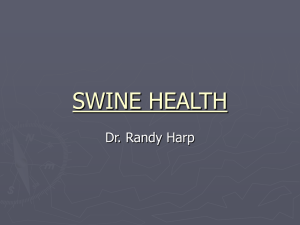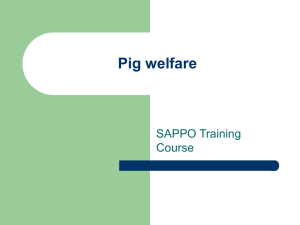Biosecurity
advertisement
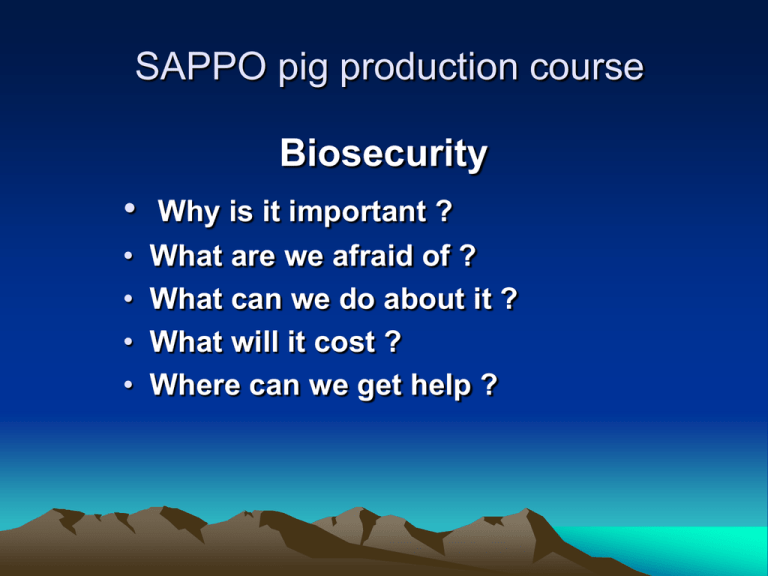
SAPPO pig production course Biosecurity • Why is it important ? • • • • What are we afraid of ? What can we do about it ? What will it cost ? Where can we get help ? Biosecurity Why is it important? • South Africa is an active part of the global village with its rapid communications and increasing volumes of imports and exports; • Genetic improvement goes with imported semen and live pigs, both of which can carry diseases; • Emerging and small herds are not protected from getting infections and passing them on; • Every part of pig production is concerned – breeding, housing, feeding, health and marketing. Biosecurity The threats: • Destructive diseases eg African swine fever, hog cholera, blue ear disease, foot and mouth, exotic viruses; • Common economic diseases eg E coli enteritis, respiratory conditions, mange, reproductive failure, worms; • Stock theft Biosecurity • Destructive diseases ASF: total loss FMD: vesicles Biosecurity • Economic diseases Parvovirus mummies Ascaris worms in intestine Biosecurity • Where do destructive diseases come from ? Sources: • 1. • 2. • • • • • 3. 4. 5. 6. 7. Bought-in pigs from auctions, speculators; People: neighbours, family, friends, reps. officials, vets; Swill, especially if it includes animal tissues; Vehicles from millers, butchers, dealers; Containers, especially second-hand feed sacks; Birds, dogs, rodents; Water, dust, wind Biosecurity • What can we do? Rules to keep infections out of your herd: • 1. • 2. • 3. Fence the property in a way that keeps your pigs in and other pigs, dogs and people out; secure the gate with chain and padlock; Put notices on fences and gates; be strict; Keep pigs in pens or small camps away from the fence; 2nd hand materials are OK The message is clear Biosecurity Rules continued: • 4. • 5. Comfortable, usable pens don’t have to be expensive; Simple, non- wasting food or water holder helps costs and hygiene Biosecurity • Rules continued; feeding:• 6. Give pigs the best quality feed you can afford; • • • • 7. 8. 9. 10. NEVER feed any food of animal origin; NEVER feed anything from a harbour or airport; Cook all raw putrescible material for 30 minutes Use nutritious dry food such as old bakery items, dated dog, horse or other cubes; • 11. Bulky, energy-rich vegetables (pumpkin, carrots, butternut ) Balanced rations are best Boiling raw “swill” is a must Biosecurity • Rules continued, water:• 12. All pigs need water, lactating sows need large amounts – up to 30 litres per day with a big litter; • 13. Water quality is important – it can act as a transmitter of infections Water supplies can be a big problem A clever water system Biosecurity • Rules continued, pigs and veterinary help: • 14. Separate new pigs from the herd for four weeks while they are tested and treated; • 15. Ask for veterinary advice regarding routine treatments and preventive measures for quarantine pigs, and the herd in general; • 16. Make regular use of vaccines, share the costs with other owners ; • 17. Always consult the area State Veterinary Dept to find out about prevailing regulations re movement, marketing, disease control measures – they are there to protect you; • 18. Help is available from the Dept of Agriculture, the Vet Dept, SAPPO and pharmaceutical companies Biosecurity • Good luck with a successful and minimal disease project!! • Any questions?
